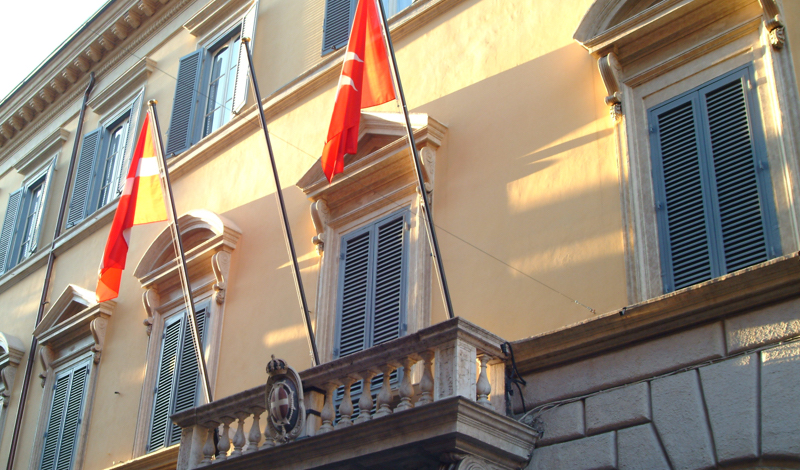+
JMJ
Modernists are meddlers.
We've witnessed what happens if there is not a strong authority to keep them in check:
- Second Vatican Council
- Novus Ordo Missae
- Code of Canon law
- etc, etc, etc.
This is the way of things and also highlights why it is critical that the SSPX have a strong authority in its leader and unwavering support from the Pope.
Otherwise we would see history repeat itself:
FSSP 2000:
- Whiners want to say the New Mass
- Rome intervenes
- Whiners leave
FFI 2013:
- Whiners complain about the decision to have the conventual mass changed to the Tridentine Mas
- Rome intervenes
- Whiners leave
- Whiner complains that he was unjustly expelled
- Rome intervenes
- Whiner(s) leave <prediction>
In their wake, the whiner leave orders that are radically changed if not decimated.
At least it appears that the SOM is not about to be meddled with.
P^3
Source: Order of Malta: Statement of the Grand Magistry
Statement of the Grand Magistry

The Grand Magistry of the Sovereign Order of Malta, in response to the activities being carried out by a Group appointed by the Secretary of State of the Vatican, considers it appropriate to reiterate that the replacement of the former Grand Chancellor was an internal act of the government of the Order.
Thus, considering the legal irrelevance of this Group and of its findings relating to the legal structure of the Order of Malta, the Order has decided that it should not cooperate with it. This is to protect its sovereignty against initiatives which claim to be directed at objectively (and, therefore – quite apart from its intentions – reveals it to be legally irrelevant) questioning or even limiting said Sovereignty.
Article 4 paragraph 6 of the Constitutional Charter is clear when it states that “the religious nature of the Order does not prejudice the exercise of sovereign prerogatives pertaining to the Order in so far as it is recognised by States as a subject of international law” and Article 4 paragraph 5 reiterates that “the Order has diplomatic representation to the Holy See, according to the norms of international law.”
The confirmation of such status under international law is also attested to in the Annuario Pontificio of the Holy See, where the Order is mentioned only once and not amongst the religious orders, but rather amongst the States with Embassies accredited the Holy See.
The different ranks of the members of the Order belonging to different classes should be noted, and therefore also the hierarchical relationships that exist between those members and their superiors. The Second Class, to which the former Grand Chancellor belonged, is for members of the Order ‘in Obedience’ who make the Promise according to Article 9 paragraph 2 of the Constitutional Charter (see also Article 8 paragraph 1 b) of the Constitutional Charter). This Promise has nothing to do with the Vow of Obedience taken by the Knights of Justice, who belong to the First Class. Therefore the Knights of Justice “are religious in all respects” (Article 9 paragraph 1 of the Constitutional Charter), whilst they are not ‘Knights in Obedience’.
In addition, according to Article 4 paragraph 2, the Constitutional Charter states that members of the Second Class who have taken the Promise of Obedience are only subordinate to their superiors within the Order.
In the light of these fundamental legal regulations, it is clear that, in strictly legal terms, a refusal to a command ‘in Obedience’ does not justify in any way the involvement of ‘religious superiors’, all the more so as they do not all belong to the Order.
Such involvement, in addition to being legally impossible, is also superfluous in terms of protecting members of the Order: from the time that the members of the Second and Third Class who wish to appeal against disciplinary measures they consider too harsh, can dispute these before the Magistral Courts, as provided for by Article 129 of the Constitutional Code.
Failure to cooperate with the aforementioned Group has therefore strictly legal grounds, thus it is not and cannot in any way be considered as a lack of respect towards the Group, nor towards His Eminence Secretary of State.
The position of the Grand Magistry is that the depositions that individual members consider that they could make to the Group cannot, in their terms and judgments, be in contradiction, directly or indirectly, with the decision of the Grand Master and the Sovereign Council concerning the replacement of the Grand Chancellor.


Comments
Post a Comment